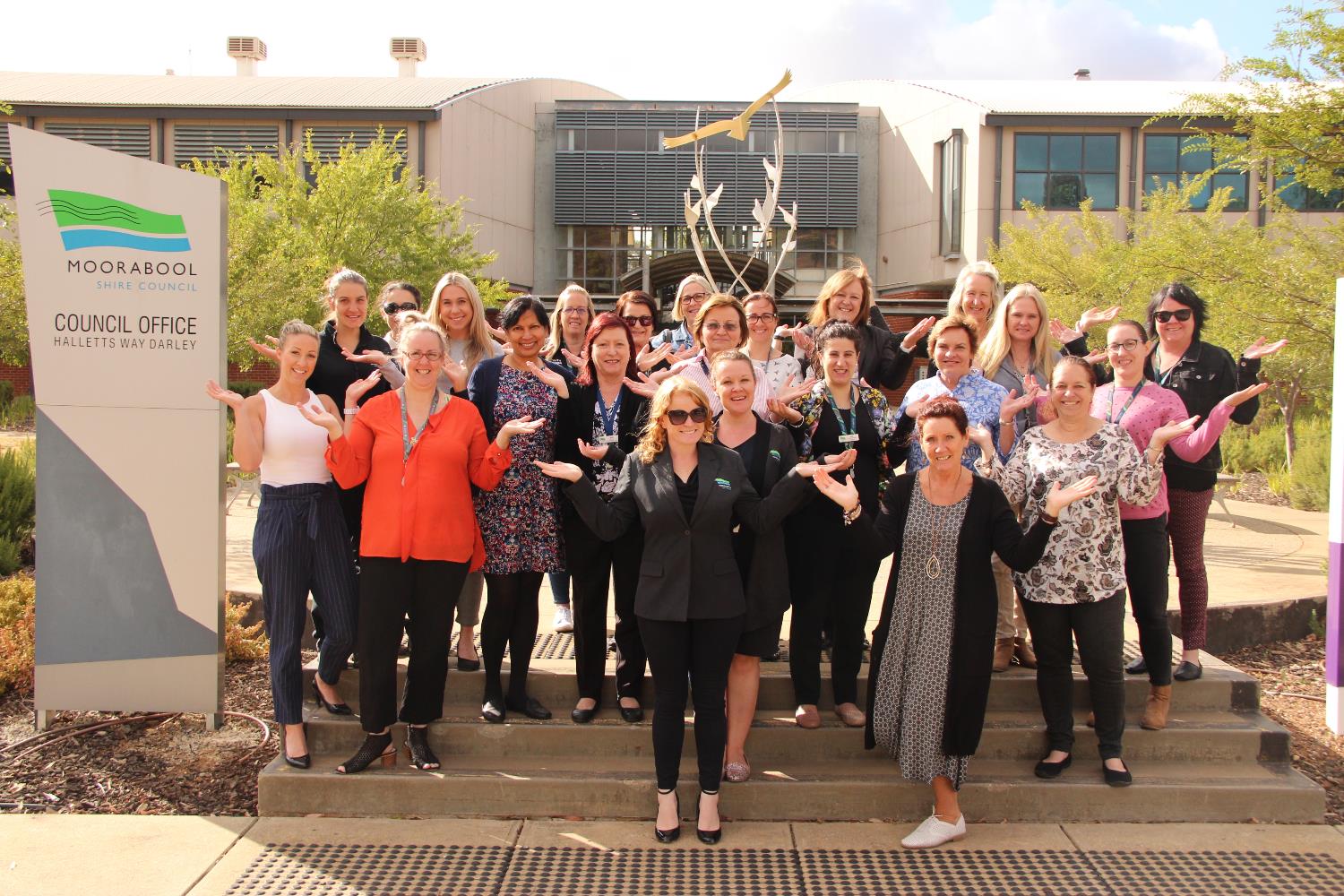Prevention of violence and gender equity
Information and contact details about the prevention of violence and community support.

A community where women and children feel safe
Moorabool Shire Council leads the municipality in preventing violence against women. We do this by creating safe, respectful, inclusive, and equitable communities. This allows women and children to enjoy their lives free from the threat of violence.
View our Leadership Statement for the Prevention of Violence Against Women.(PDF, 2MB)
Communities of Respect and Equality (CoRE)
Moorabool Shire Council is a partner of the Communities of Respect and Equality(PDF, 2MB) (CoRE) Alliance within the Grampians Region.
16 Days of Activism
Council supports campaigns against violence towards women and girls.
Get advice and support from the following services:
The Orange Door in Central Highlands
A new way for women, children and young people to get support if they are experiencing family violence or need help with a child's wellbeing. They can also help people who use violence to change their behaviour.
21 Armstrong Street North, Ballarat 3350
1800 219 819
cha@orangedoor.vic.gov.au or visit the website.
1800 RESPECT
National sexual assault, domestic violence and family violence counselling service.
Call 1800 737 732 or visit the website
Rainbow Door
Specialist LGBTQIA+ helpline providing information support and referral for all LGBTQIA+ Victorians, their friends and family.
Call 1800 729 367 10am-6pm daily or visit the website
Djirra
Culturally safe support for all Aboriginal women and in particular those experiencing or with a history of family violence.
Call 1800 105 303 or visit the website
WRISC Family Violence Support
Provides advocacy support, court support, housing, and case management.
Call (03) 5333 3666 or visit www.wrisc.org.au for more information.
Safe Steps Family Violence Response Centre
Response service for children, young people, and women experiencing family aggression or violence. Specialist support for people with a disability who are experiencing family violence is also available.
Visit www.safesteps.com.au or call 1800 015 188.
Domestic Violence Resource Centre Victoria
Provide telephone support, information, and referral services to help people who have experienced family violence. For more info,visit online information.Alsofor professionals offering support services for violence survivors, visitTraining courses. For info on services in the Central Highlands Region, visitwww.dvrcv.org.au/central-highlands.
Call (03) 8346 5200 from Monday to Friday, 9am-5pm.
Men’s Referral Service Helpline
Support for men to help them take action to stop using violent or controlling behaviour, and support for victims of violent behaviour by other men.
Call 1300 766 491
inTouch Multicultural Centre Against Family Violence
A statewide specialist family violence service for women from migrant or refugee backgrounds, their families and communities.
Call 1800 755 988 or visit https://intouch.org.au/
Seniors Rights Victoria
For support and information regarding Elder Abuse and your rights. If you, or someone you know is experiencing elder abuse, help is available.
Seniors Rights Victoria’s confidential helpline 1300 368 821 or go to the Seniors Rights Victoria Website
Victims Assistance Program
Providing information, practical supports and service referrals for victims of a violent crime or anyone affected by a violent crime.
Call 1300 033 818 Monday to Friday 9am-5pm, or visit CatholicCare -Victims Assistance Program website
Child Protection Victoria
Support for children and young people at risk of harm or no protection from family.
Call 1800 075 599 or after hours on 131 278.
Child First
Support for children, young people, and families who are vulnerable and at risk of harm.
Call 1300 783 341
Child Safe Standards
The Child Safe Standards exist to prevent abuse. Complying with them will help you ensure the children your organisation works with are kept physically, emotionally, and culturally safe. The standards not only protect children from abuse and harm but nurture their wellbeing and support their voices in speaking out.